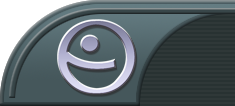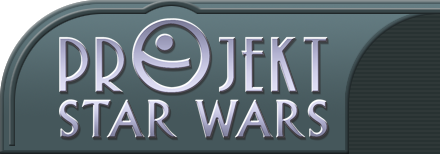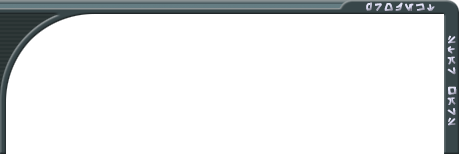App installieren
How to install the app on iOS
Follow along with the video below to see how to install our site as a web app on your home screen.

Anmerkung: This feature currently requires accessing the site using the built-in Safari browser.
Du verwendest einen veralteten Browser. Es ist möglich, dass diese oder andere Websites nicht korrekt angezeigt werden.
Du solltest ein Upgrade durchführen oder einen alternativen Browser verwenden.
Du solltest ein Upgrade durchführen oder einen alternativen Browser verwenden.
Der Wilhelm Schrei
- Ersteller W.Antilles
- Erstellt am
Darth Beck'sche
the evil twin ; und der Meinung, dass Robin der be
Ich find der war ganz schön auffällig.
Aber jetzt meine Frage:
Wieso hat der Klon der diesen Schrei loslässt eine andere Stimme wie die anderen Clonetrooper, die kommen doch alle von der selben "Quelle", da müssten doch auch alle die selbe Stimme haben,oder? Ich sag nur Logikfehler- oder sind die auch teilweise rekrutiert?
nee, die Frage war nur ein Scherz.
Aber jetzt meine Frage:
Wieso hat der Klon der diesen Schrei loslässt eine andere Stimme wie die anderen Clonetrooper, die kommen doch alle von der selben "Quelle", da müssten doch auch alle die selbe Stimme haben,oder? Ich sag nur Logikfehler- oder sind die auch teilweise rekrutiert?

nee, die Frage war nur ein Scherz.

Aja gut, heute Abend seh ich den Film auch, werd sicherlich auch drauf achten. Aber meist ist ja nur ein Schrei pro Film.
@ Heulläufer:
Ich finde das mit dem gleichen Sound finde ich auch faszinierend. Wobei mir das eher in Star Wars selber auffällt. Da liegt es ja nahe, z. T. gleiche Sounds mehrmals zu verwenden.
Das beste Beispiel ist die Kreatur in Jabbas Palast (ich weiß den Namen net), die zusammen mit Luke in die Grube fällt und vom Rancor gefressen wird. Die schreit teilweise genauso wie das spinnenartige Viech (auch da weiß ich den Namen net ^^) in Episode II.
Ciao
Lotus
@ Heulläufer:
Ich finde das mit dem gleichen Sound finde ich auch faszinierend. Wobei mir das eher in Star Wars selber auffällt. Da liegt es ja nahe, z. T. gleiche Sounds mehrmals zu verwenden.
Das beste Beispiel ist die Kreatur in Jabbas Palast (ich weiß den Namen net), die zusammen mit Luke in die Grube fällt und vom Rancor gefressen wird. Die schreit teilweise genauso wie das spinnenartige Viech (auch da weiß ich den Namen net ^^) in Episode II.
Ciao
Lotus
Darth Hirnfrost
Workman
Während
der Schlacht von Kashyyyk
ist der Schrei IMO auch noch mal leise zu hören. Da muss man schon genauer Acht geben.icebär
♥ ♥ Pusteblume ♥ ♥
Hab zwei nette Sachen gefunden:
[YOUTUBE]4YDpuA90KEY[/YOUTUBE]
[YOUTUBE]4YDpuA90KEY[/YOUTUBE]
http://hollywoodlostandfound.net/wilhelm/The WILHELM Scream
One sound effect that has found a following with many sound editors and observant movie fans is a distinctive scream named Wilhelm.
In 1951, the Warner Bros. film "Distant Drums" directed by Raoul Walsh starred Gary Cooper as Captain Quincy Wyatt, who leads a group of soldiers to stop some Seminole Indians from threatening settlers in early 19th Century Florida. During a scene in which the soldiers are wading through a swamp in the everglades, one of them is bitten and dragged underwater by an alligator.
As is usually the case with the making of a movie, the scream for that character was recorded later. Six short pained screams were recorded in a single take, which was slated "man getting bit by an alligator, and he screams." The fifth scream was used for the soldier - but the 4th, 5th, and 6th screams recorded in the session were also used earlier in the film when three Indians are shot, one after another, during a raid on a fort.
After "Distant Drums," the recording was archived into the studio's sound effects library, and was re-used in many Warner Bros. productions.
In "The Charge at Feather River" (1953), the scream is heard when a soldier named Pvt. Wilhelm (played by Ralph Brooke) gets shot in the leg by an arrow. Originally released in 3-D, the film used the "Distant Drums" scream recording two other times as well.
Up until the mid-70's, the scream recording was used exclusively in Warner Bros. productions, including "Them!" (1954), "Land of the Pharaohs" (1955), "The Sea Chase" (1955), "Sergeant Rutledge" (1960), "PT-109" (1963) and "The Green Berets (1968).
In "A Star is Born" (1954), the scream is heard twice - one of the times because a scene with the scream in "Charge at Feather River" is playing in a screening room.
One person who noticed the same distinctive scream reoccurring in so many movies was sound effects fan Ben Burtt. Ben and his friends in the cinema department at USC, Rick Mitchell and Richard Anderson, noticed that a scream was popping up in a lot of movies. One of the films they made together, a swashbuckler parody "The Scarlet Blade" (1974) included the scream - which they borrowed off another film's audio track.
A few years later, when Ben Burtt was hired to create sound effects for Star Wars (1977), he had an opportunity to do research at the sound departments of several movie studios. While at Warner Bros. looking for sound elements to use in the space adventure, he found the original "Distant Drums" scream - which he called "Wilhelm" after the character that let out the scream in "Charge at Feather River."
Ben adopted the scream as a kind of personal sound signature, and included it in all the "Star Wars" and "Indiana Jones" films, and many of the other films he has worked on including "More American Graffiti" (1979) and "Willow" (1988).
Ben's friend Richard Anderson also continued the tradition. Both Anderson and Burtt worked on "Raiders of the Lost Ark" (1981), and Richard used the screams in the film's truck chase - one of the sequences he cut sounds for himself.
Richard also used it in many of the films he supervised sound editing for, including "Poltergeist" (1982), "Batman Returns" (1992), "Planet of the Apes" (2001), "Agent Cody Banks" (2003), and "Madagascar" (2005).
Because of Ben Burtt, the Wilhelm has lived in the sound library at Skywalker Sound. Other colleagues there including Gary Rydstrom and Chris Boyes have used it in such films as "Toy Story" (1995), "Hercules" (1997) and "Pirates of the Caribbean" (2003).
Richard Anderson and his company, Weddington Productions (now a part of Technicolor Sound Services), archived the scream into his library as well. Editors there including Mark Mangini, David Whittaker, Steve Lee and George Simpson have used it in "Beauty and the Beast" (1991), "Aladdin" (1992), "A Goofy Movie" (1995), "The Fifth Element" (1997), “The Majestic” (2001), “Just Visiting” (2001), “A Man Apart” (2003), and "Tears of the Sun" (2003).
Growing in familiarity with fellow sound editors, especially with its use in the hugely successful "Star Wars" series, the Wilhelm Scream has become a favorite with a few sound editors outside of Skywalker and Weddington. Although it has never been available in any commercial sound effects library, the recording has made it around the sound community through editors who appreciate its history.
Only a few studios have the master of the Wilhelm, but because the "classic" scream can be found "in the clear" in a few films - such as the Judy Garland version of "A Star as Born," it has been "borrowed" for projects this way by other studios… not to mention quite a few student films.
Some noted Directors have become fans of the Wilhelm and its history, asking for it by name.
Joe Dante is familiar with the scream. Beginning with his first major film, "Hollywood Boulevard" (1976), it has been included in his films "Explorers" (1985), "Gremlins 2" (1990), "The Second Civil War" (1997), “Matinee” (1993), and "Looney Tunes: Back in Action" (2003).
After learning the significance of the scream while it was being put into "Reservoir Dogs" (1992), Quentin Tarantino called a break from its mix so that he and his sound crew could crowd into a nearby room with a small TV to watch "Distant Drums" on a local station to hear the scream. Later Wilhelm appeared in his film "Kill Bill: Vol. 1" (2003) as well.
When Peter Jackson was told the history of the Wilhelm during the sound mix of "The Lord of the Rings: The Two Towers" (2002), he was so excited it was included that he had its volume raised - and insisted that it also be used in "Return of the King" (2003).
Wilhelm occasionally pops up on television shows. Besides its use in a number of shows produced at Warner Bros. in the '50s and '60s, including "Maverick," it was in episodes of "The X-Files," "Angel," and "Family Guy." It has found its way into a few commercials as well - for Dell Computers and Comcast.
Several theme park attractions included the scream, such as The Star Trek Adventure at Universal Studios, The Batman Adventure at Warner Bros. Movie World, and "Golden Dreams" playing at Disney's California Adventure.
Video game fans have encountered the Wilhelm in many Star Wars games.
Although the "signature" or "classic" screams, takes 4 through 6 on the original recording, are the most recognizable, all of the screams are referred to as "Wilhelm" by those in the sound community.
The first scream can be heard in "The Empire Strikes Back" (1980) during the Hoth battle when a rebel soldier’s laser gun dish is hit and explodes, and also during the truck chase in "Raiders of the Lost Ark" when a Nazi soldier falls from the rear left side of the truck, ripping the canvas as he falls. The second take can be heard in Tim Burton's "Planet of the Apes" (2001) when General Thade (Tim Roth) hurls two humans into the air at once.
The third scream is heard in the original "Star Wars" just before the stormtrooper falls into the chasm on the Death Star - and just before the "classic" Wilhelm is heard. It is also in "Star Wars Episode II: Attack of the Clones" (2002) when a ship explodes on the planet Coruscant at the beginning of the film.
Many fans of the Wilhelm Scream have long wondered who originally performed the scream. No specific documentation has been found attributing the scream to any one person, but Ben Burtt has been researching the matter.
Between his work on the last "Star Wars" films, he has visited Warner Bros. to gather more information. He discovered a file for "Distant Drums," which contained paperwork that was left over from the picture editor when the film was completed. One of the papers was a short list of names of actors who were scheduled to come in to perform various lines of dialogue for miscellaneous roles in the movie. After reviewing the names and even listening to their voices, one person seemed to be the most likely suspect.
Sheb Wooley was a musician and character actor who appeared in many Westerns - but is probably most famous for the song "Purple People Eater," which in 1958 spent six weeks at Number One and sold 3 million copies.
He played one of the four gunslingers that stalked Gary Cooper in the classic "High Noon" (1953), and starred on the hit TV series "Rawhide" as scout Pete Nolan. He also appeared in "Giant" (1956), "The Outlaw Josey Wales" (1976), "Silverado" (1985) and even the film adaptation of his song "Purple People Eater" (1988).
Sheb played the uncredited role of Private Jessup in "Distant Drums," and was one of the few actors assembled for the recording of additional vocal elements for the film. It is very likely he was asked on the spot to perform other things for the film, including the screams for a man being bitten by an alligator.
Sheb Wooley died of leukemia in Nashville, Tennessee, in 2003. He was 82.
Although there is no way to confirm with him that he performed these special screams, his wife, Linda Dotson-Wooley, said Sheb was fond of saying how talented he was at performing laughs, screams, and dying vocals for films.
After finishing the last "Star Wars" film and beginning work at Pixar, Ben Burtt has announced he will no longer be using the Wilhelm. This is surely an end of an era for the scream, but there is no indication that it will be silenced anytime soon. The Wilhelm Scream continues to be heard in new films every year.
Mad Blacklord
weiser Botschafter
Zuerst einmal hier der erste Wilhelm Schrei überhaupt:
[YOUTUBE]dc5F2C0CYlA[/YOUTUBE]
Dann haben die Jungs von Hollywood Lost and Found neben dieser Liste auch eine kleine Geschichtsdoku zusammengestellt.
[YOUTUBE]_PxALy22utc[/YOUTUBE]
Und als Bonus Szenen die den Wilhemschrei haben sollten
[YOUTUBE]kHXRyTwsTQc[/YOUTUBE]
[YOUTUBE]dc5F2C0CYlA[/YOUTUBE]
Dann haben die Jungs von Hollywood Lost and Found neben dieser Liste auch eine kleine Geschichtsdoku zusammengestellt.
[YOUTUBE]_PxALy22utc[/YOUTUBE]
Und als Bonus Szenen die den Wilhemschrei haben sollten

[YOUTUBE]kHXRyTwsTQc[/YOUTUBE]
Zuletzt bearbeitet:
D
DarthMike99
Gast
War erst kürzlich in The Clone Wars in der Folge Citadel Rescue zu hören.
Banthapudu
Botschafter
Der Tod eines Sounddesign-Easter-Eggs wurde verkündet. Der Wilhelm Schrei ist tot, lang lebe der neueste Schrei!
Ich werde ihm nicht hinterher trauern, denn es ist okay für mich, dass man ihn nicht mehr verwendet, da Ben Burtt ihn damals eingeführt hat und er ja leider von Matthew Wood abgelöst worden ist.
Ich empfinde es allerdings als Frechheit, einen neuen Schrei einzubauen, wie wohl in R1 und TLJ geschehen. Kann man sich nicht ein eigenes Markenzeichen kreieren? Musste es ausgerechnet wieder ein Schrei sein?
Ich werde ihm nicht hinterher trauern, denn es ist okay für mich, dass man ihn nicht mehr verwendet, da Ben Burtt ihn damals eingeführt hat und er ja leider von Matthew Wood abgelöst worden ist.
Ich empfinde es allerdings als Frechheit, einen neuen Schrei einzubauen, wie wohl in R1 und TLJ geschehen. Kann man sich nicht ein eigenes Markenzeichen kreieren? Musste es ausgerechnet wieder ein Schrei sein?
Darth_Seebi
ganz böser Sith
Finde es sehr schade, wenn der Williamsschrei nicht mehr verwendet wird. Gehörte bei SW einfach dazu und ist mir bereits bei TLJ abgegangen (in R1 hörte man ihn zumindest abgehakt).
Banthapudu
Botschafter
@Darth_Seebi Sicher bei R1? War das nicht bei TFA, bei der Fluchtszene mit dem Tie?
Darth_Seebi
ganz böser Sith
Bei R1 hörte man beim Kampf auf Jedah einen "halben Williamsschrei". Ist mir auch erst auf DVD, als ich wusste, wo ich suchen muss, aufgefallen.
Banthapudu
Botschafter
Werde ich mal drauf Acht geben, habe den ja bestimmt nicht zum letzten Mal gesehen.Bei R1 hörte man beim Kampf auf Jedah einen "halben Williamsschrei". Ist mir auch erst auf DVD, als ich wusste, wo ich suchen muss, aufgefallen.
garakvsneelix
loyaler Abgesandter
Gehörte bei SW einfach dazu und ist mir bereits bei TLJ abgegangen (in R1 hörte man ihn zumindest abgehakt).
Das ist es ja, was ich an RJ's Art nicht mag. Bei RO, dem ersten Anthology-Film, passte dieses Spiel mit den altbekannten Sachen. K2 durfte sein "I have a bad feeling about this" nicht beenden, der Wilhlemschrei war halt zur Hälfte da... alles gut, denn es war ja ein Anthology-Film, und da hätte es sogar noch weitaus mehr versteckt werden dürfen. Jetzt ist es aber plötzlich in einer Episode absichtlich nicht dabei bzw. "I have a bad feeling about this" wird absichtlich sehr, sehr stark versteckt (BB-8 sagt es, recht billig)... und das bei der (vielleicht) vorletzten Episode plötzlich mirnix dirnix. Nein, nein, bei den Episoden hätte man da weitaus mehr auf die Traditionen achten müssen (JJA hat das vielleicht sogar zu stark getan, was im Vergleich aber wesentlich weniger wiegt). Unter anderem daher wirkt Episode 8 auf mich im Nachhall wirklich eher wie ein Anthology-Film und daher zumindest bzgl. mancher Details leider einfach am Thema vorbei.
R
riepichiep
Gast
Mich zieht der Schrei immer ein wenig aus dem Film (egal, welchem). Er ist für mich ein eindeutiges "das ist nur ein Film"-Zeichen (und während dem gucken will ich das ja eigentlich vergessenFinde es sehr schade, wenn der Williamsschrei nicht mehr verwendet wird. Gehörte bei SW einfach dazu und ist mir bereits bei TLJ abgegangen (in R1 hörte man ihn zumindest abgehakt).
Daniel
What's past is prologue
Das ist es ja, was ich an RJ's Art nicht mag. Bei RO, dem ersten Anthology-Film, passte dieses Spiel mit den altbekannten Sachen. K2 durfte sein "I have a bad feeling about this" nicht beenden, der Wilhlemschrei war halt zur Hälfte da... alles gut, denn es war ja ein Anthology-Film, und da hätte es sogar noch weitaus mehr versteckt werden dürfen. Jetzt ist es aber plötzlich in einer Episode absichtlich nicht dabei bzw. "I have a bad feeling about this" wird absichtlich sehr, sehr stark versteckt (BB-8 sagt es, recht billig)... und das bei der (vielleicht) vorletzten Episode plötzlich mirnix dirnix. Nein, nein, bei den Episoden hätte man da weitaus mehr auf die Traditionen achten müssen (JJA hat das vielleicht sogar zu stark getan, was im Vergleich aber wesentlich weniger wiegt). Unter anderem daher wirkt Episode 8 auf mich im Nachhall wirklich eher wie ein Anthology-Film und daher zumindest bzgl. mancher Details leider einfach am Thema vorbei.
Es ist ein kurzer Schrei von einer Sekunde, um den es hier geht. Du wirst seine zukünftige Abwesenheit schon überleben.
garakvsneelix
loyaler Abgesandter
Es ist ein kurzer Schrei von einer Sekunde, um den es hier geht. Du wirst seine zukünftige Abwesenheit schon überleben.
Und deswegen habe ich den Schrei auch in einen Zusammenhang gestellt. Und in diesem Gesamtzusammenhang ist die Abwesenheit des Schreis nun einmal ein weiteres Symptom für eine Art und Weise von RJ, die ich nicht sonderlich mag. Insbesondere, weil nichtsdestotrotz Episode VIII ein IMO durchaus gelungener (für SW-Episoden-Verhältnisse allerdings schlechter, zugegeben) Film geworden ist, wirst du dann das sicherlich überleben, auch ohne Klischee-Fanboy-Sprüche zu schmeißen

Banthapudu
Botschafter
"Michse" ist das geilste Personalpronomen der gesamten Saga! Roger, roger?Was sind denn Klischee Fanboy Sprüche?




 Ein toller Überblick über die Geschichte des "Wilhelm".
Ein toller Überblick über die Geschichte des "Wilhelm". 